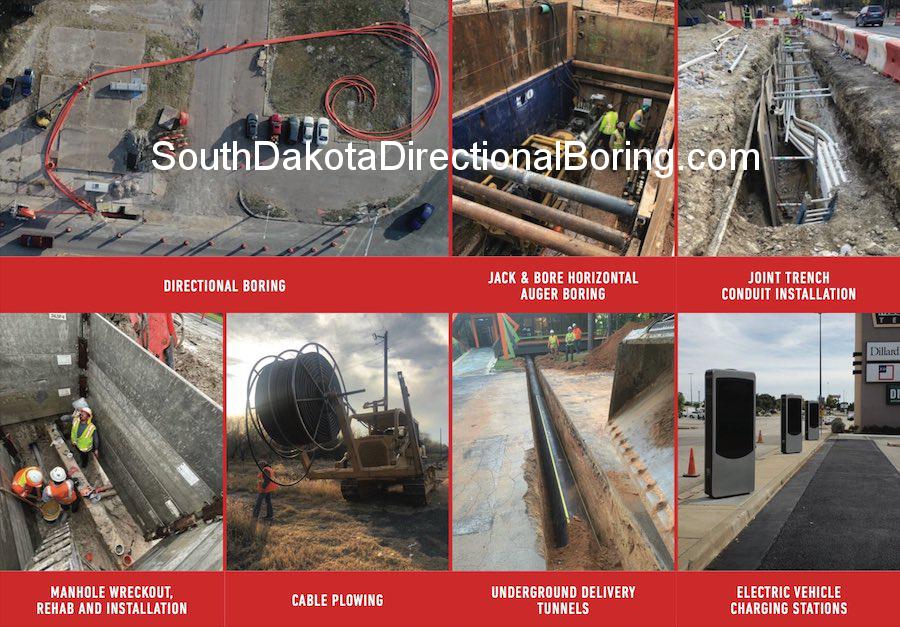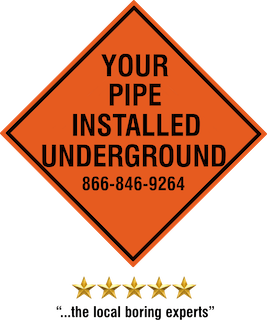Solar Farm Construction
South Dakota Directional Boring - Solar Farm Construction Contractors
Solar farm construction integrates a variety of trenchless technologies and construction methods to address complex installation challenges. These technologies, including HDD (Horizontal Directional Drilling), jack and bore, and trenchless techniques, are crucial for efficient, non-invasive installations. Here’s a breakdown of how these methods are utilized:
South Dakota Directional Boring - Solar Farm Construction Companies
1. Horizontal Directional Drilling (HDD)
- Purpose: To install underground utilities like conduits and pipes without extensive surface disruption.
- Applications:
- Crossing roads, railroads, creeks, and rivers without excavation.
- Installing electric and medium-voltage cabling to connect solar panels, transformers, and substations.
- Protecting sensitive environments like wetlands.
2. Directional Boring
- Purpose: Similar to HDD, used for smaller installations where precise alignment is necessary.
- Applications:
- Laying communication conduits for monitoring systems in solar farms.
- Supporting underground duct bank systems for power transmission.
3. Jack and Bore
- Purpose: Used for installing casings under obstacles like roads and railways.
- Applications:
- Creating a protective casing for electric conduit systems to safely pass under highways, railroads, and other infrastructure.
- Useful when the project requires a precise, grade-sensitive bore.
4. Trenchless Technology
- Purpose: A broad category that includes HDD and jack and bore to minimize surface disruption.
- Applications:
- Streamlining conduit construction for electric and data systems without disturbing the solar farm’s operational areas.
- Creating underground infrastructure in areas where open trenching is impractical.
5. Duct Bank Construction
- Purpose: To house multiple conduits in a single underground system.
- Applications:
- Organizing medium-voltage cables and other utility conduits efficiently.
- Protecting cables from environmental damage and ensuring long-term reliability.
6. Conduit Installation
- Purpose: Protect and organize electric wiring and medium-voltage lines.
- Applications:
- Connecting solar arrays to transformers and substations.
- Ensuring safe, organized routing of cables across the solar farm.
Key Advantages in Solar Farms
- Environmental Protection: Trenchless methods minimize surface disruption, preserving the surrounding ecosystem.
- Cost-Effectiveness: Reduces the need for extensive excavation and surface restoration.
- Efficiency: Allows installation of utilities under busy roads, railroads, or water bodies without traffic disruptions or rerouting.
- Flexibility: Handles complex terrains, including rocky soils, wetlands, and urbanized areas.
South Dakota Directional Boring - Solar Farm Construction Near Me
Integration in Solar Farm Layout
- Electric Infrastructure: HDD and jack and bore install underground cables for power transmission.
- Access Roads: Utilities like water and electricity for maintenance are installed under roads with trenchless methods.
- Environmental Crossings: Rivers and creeks are crossed with HDD to prevent water contamination or disruption.
These construction techniques are critical for the success of solar farms, ensuring durable, efficient, and environmentally friendly infrastructure.


